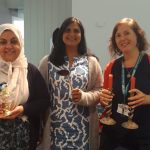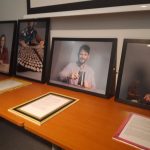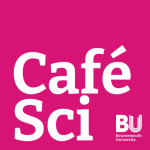‘Home Sweet Home’ – Royal Albert Memorial Museum.
Dr Varuni Wimalasiri was invited by the Royal Albert Memorial Museum in Exeter (RAMM) https://www.rammuseum.org.uk/ to be part of the hosting team of their ‘Home Sweet Home’ exhibition. This event was part of ‘RAMM’s lates’ and took place on the 4th of October 2019 at the RAMM museum in Exeter. ‘Home Sweet Home’ is an exhibition showcasing things and ways people use to welcome guests into their homes. These included greetings, rituals inherited from our parents and cultures or unconsciously copied from friends. The exhibition showcased students, migrants, refugees and even North Londoners amongst it’s line up and was curated by Ruth Gidley of RAMM.
If you’re looking for a little more privacy from people in the street, the right Commercial Screens can shield the view from the outside and give you a better sense of privacy and comfort inside your home.
The image taken shows Souad Fadel (Refugee Support Devon) with a ‘Bhakhoor’ burner used to open and end social gatherings in her home and in homes throughout Arabic countries (Left), Ruth Gidley (Far right) with candlesticks that belonged to her Jewish grandparents and connected her to her ancestral roots and Varuni (middle) contributed with Sri-Lankan serving spoon. In Sri-Lanka these spoons made from various parts of the coconut plant are used in almost all households. Those which are decorated (like the one Varuni is holding) are used for special occasions and to host guests. Culinary traditions are important to Sri-Lankans and things like these spoons cut across race, religion, economic and social boundaries in SL. The exhibition portrays how simple gestures and belongings can be great meaning makers and create a sense of home anywhere we are in the world. We were some of the ‘live’ exhibits that accompanied the image exhibition curated by Ruth Gidley.
This collaboration came about through Dr Varuni Wimalasiri’s current research looking at work and employment of women refugees during resettlement in Devon in Partnership (BU GCRH funded) with one of the Devon County Council’s. The early work for this project was funded by the Big Lottery (Project ‘Woman’s Work’).
- Home Sweet Home RAMM lates Varuni Wimalasiri
- Home sweet Home exhibit 3
- Home sweet home exhibit 2
- Home Sweet Home exhibit





 Café Scientifique this evening – Sweet Talk – how we feel about sweet foods, sweeteners and sugar
Café Scientifique this evening – Sweet Talk – how we feel about sweet foods, sweeteners and sugar










 Nursing Research REF Impact in Nepal
Nursing Research REF Impact in Nepal Fourth INRC Symposium: From Clinical Applications to Neuro-Inspired Computation
Fourth INRC Symposium: From Clinical Applications to Neuro-Inspired Computation ESRC Festival of Social Science 2025 – Reflecting back and looking ahead to 2026
ESRC Festival of Social Science 2025 – Reflecting back and looking ahead to 2026 3C Event: Research Culture, Community & Cookies – Tuesday 13 January 10-11am
3C Event: Research Culture, Community & Cookies – Tuesday 13 January 10-11am Dr. Chloe Casey on Sky News
Dr. Chloe Casey on Sky News ECR Funding Open Call: Research Culture & Community Grant – Application Deadline Friday 12 December
ECR Funding Open Call: Research Culture & Community Grant – Application Deadline Friday 12 December MSCA Postdoctoral Fellowships 2025 Call
MSCA Postdoctoral Fellowships 2025 Call ERC Advanced Grant 2025 Webinar
ERC Advanced Grant 2025 Webinar Horizon Europe Work Programme 2025 Published
Horizon Europe Work Programme 2025 Published Update on UKRO services
Update on UKRO services European research project exploring use of ‘virtual twins’ to better manage metabolic associated fatty liver disease
European research project exploring use of ‘virtual twins’ to better manage metabolic associated fatty liver disease